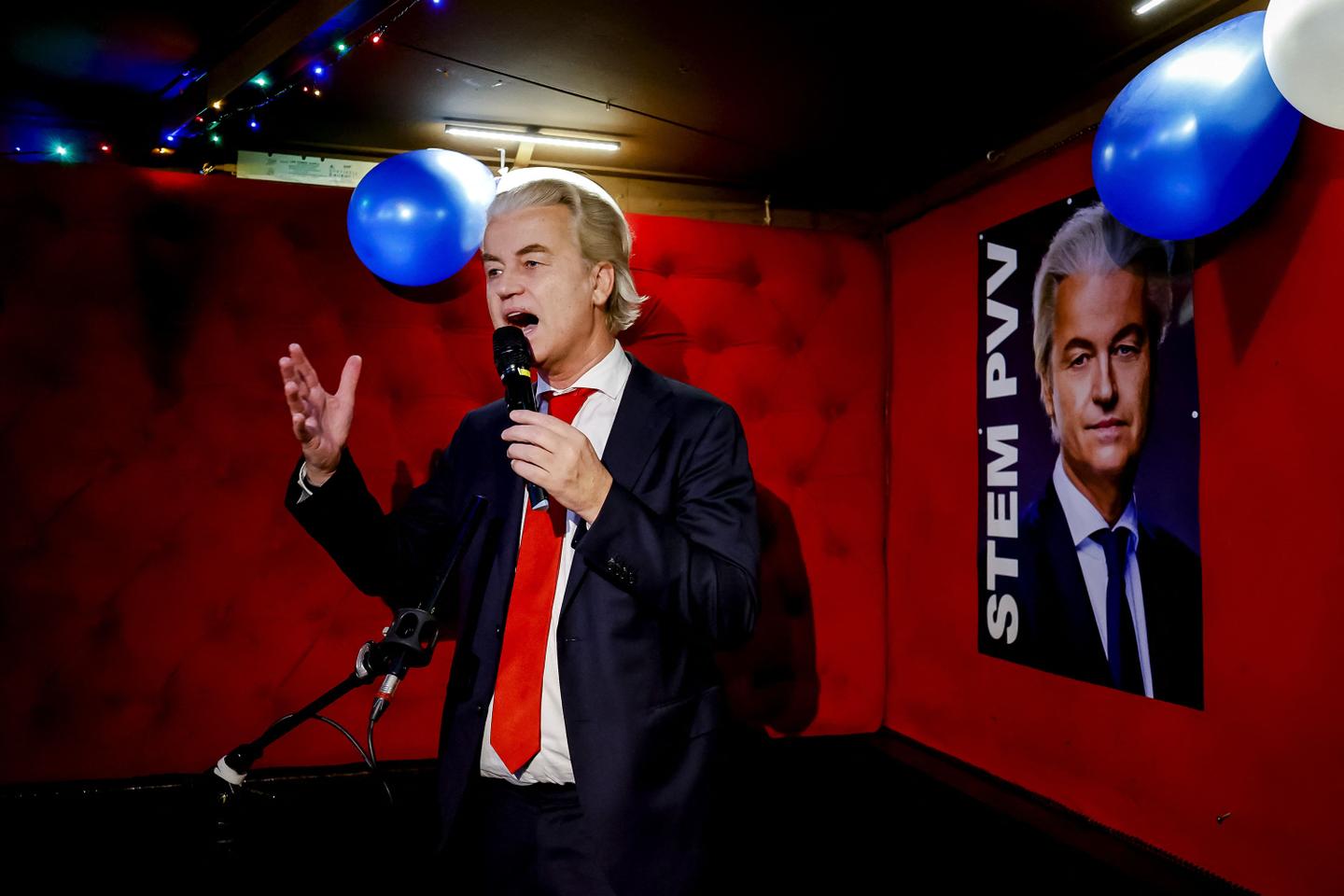


The list goes on. Geert Wilders has neither the flamboyance nor the chainsaw of Argentina's new president, Javier Milei, but his victory in the Dutch parliamentary elections on Wednesday, November 22 nonetheless marks a milestone in the rise of far-right, nationalist, populist or anti-system parties in Europe.
The Party for Freedom (PVV) led by Mr. Wilders won 37 of the 150 seats in the Dutch parliament. It is therefore far from being able to form a government; it will have to find coalition partners. Its lead, however, putting an end to 13 years of center-right rule under the leadership of Prime Minister Mark Rutte, is a serious warning to all democracies that have seen populist parties flourish in recent years and traditional parties decline. National-conservative or far-right parties are already in power, alone or in coalition, in Italy, Sweden, Hungary and Slovakia; they are rising in the polls in Germany, Austria, the Czech Republic, Belgium... and France.
This progression is neither inexorable nor linear. The July polls in Spain and the October elections in Poland showed that voters know the difference when they have a choice. This is precisely where the trap lies: Panicked by the rise of the far right, some center-right parties succumb to the temptation of adopting its themes. Yet, as the recent elections in the Netherlands have shown, voters generally prefer the original to the copy. Dilan Yesilgöz, the Dutch justice minister who succeeded Mark Rutte as leader of the liberal VVD party, saw fit to position herself further to the right than the outgoing prime minister, and to let immigration dominate the electoral debate. The result: The VVD lost 10 seats, down from 34 to 24.
Lessons to ponder
Another trap is the position to adopt on possible participation in a coalition with far-right parties. In August, by raising the possibility of a coalition between her party and Geert Wilders's, Yesilgöz broke a taboo and, above all, legitimized the PVV. As a result, a rapprochement with the far right seemed possible, if not desirable, to voters. That meant that some of the liberal party's voters gave their votes to the PVV.
Sensing this momentum, Wilders has toned down his rhetoric and stopped, for example, calling for a ban on mosques and the Quran, in order to attract centrist votes. During the last televised debate on November 21, he promised to be a prime minister "for everyone, regardless of class, creed or origin." The operation to make his party more mainstream has succeeded.
These are lessons that all democratic parties should ponder as they prepare campaigns for the European Parliament elections in 2024 or for national ballots. Avoiding the topic of immigration and asylum when it is at the top of voters' concerns, as is the case in the Netherlands, is not a solution. Nor is allowing the far right to set the terms of the debate and then falling into line with their positions.
In such troubled times, voters need clarity, not ambiguity. The Dutch warning is clear. Allowing parties like those of Geert Wilders and Marine Le Pen to become the majority in Europe poses a threat to both the rule of law and the European project.
